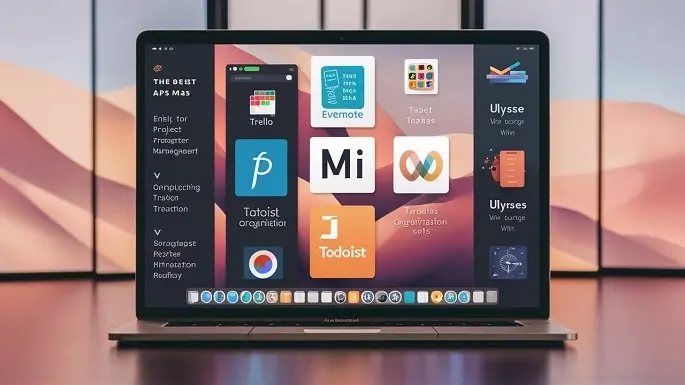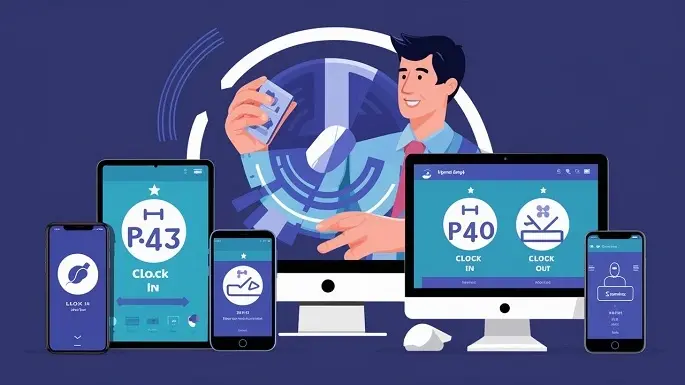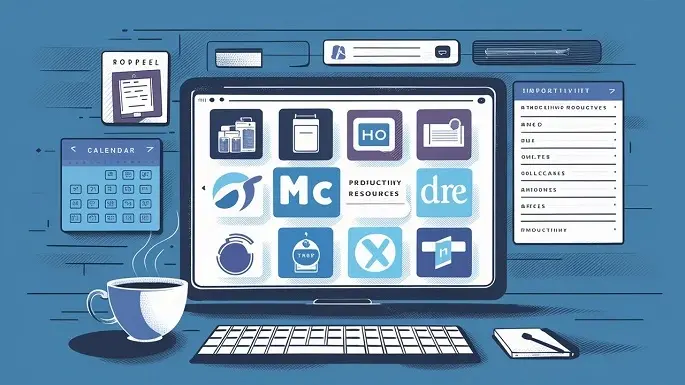In today's dynamic work environment, ensuring optimal team productivity and maintaining a healthy work-life balance are constant juggles. This is where employee tracking emerges as a valuable tool. Beyond simply monitoring activity, it empowers businesses to gain valuable insights into how work gets done, identify areas for improvement, and foster a culture of efficiency and transparency.
However, employee tracking is often met with misconceptions. It's not about micromanaging or fostering a sense of distrust. Instead, it's about leveraging technology to create a win-win situation for both employers and employees. Let's delve deeper into the world of employee tracking and explore its numerous benefits:
Understanding Employee Tracking:
Employee tracking encompasses a variety of methods used to monitor employee activity during work hours. These methods can range from time-tracking software like TMsuite to monitoring internet usage or company vehicles. The specific approach depends on the organization's needs and the type of work being performed.
10 Wonderful Benefits of Employee Tracking:
1. Enhanced Productivity: Employee tracking software like TMsuite provides valuable insights into how employees spend their time. This allows businesses to identify areas where workflows can be streamlined, eliminate time-wasting activities, and ultimately boost overall productivity.
2. Improved Project Management: Tracking employee hours spent on specific tasks helps managers accurately estimate project timelines and resource allocation. This fosters better project planning and execution, leading to smoother project completion and increased success rates.
3. Streamlined Payroll Processing: Time tracking software automates timekeeping, eliminating manual calculations and errors. This ensures accurate payroll processing, saving valuable time and resources for both HR teams and employees.
4. Increased Transparency: Employee tracking fosters a sense of transparency within the organization. Employees can see their work hours and understand expectations, while managers gain visibility into team activity. This open communication builds trust and promotes accountability.
5. Data-Driven Decision Making: Employee tracking data provides valuable insights that can inform strategic business decisions. By understanding how employees work, businesses can optimize workflows, allocate resources efficiently, and make data-driven decisions to improve overall performance.
6. Boosted Employee Morale: When employees feel their time is valued and their contributions are recognized, morale can significantly improve. Tracking systems can highlight efficient work patterns and identify opportunities for employee recognition, fostering a more positive work environment.
7. Reduced Absenteeism and Time Theft: Employee tracking systems can help identify patterns of absenteeism or unauthorized breaks. By addressing these issues proactively, businesses can minimize disruptions and ensure optimal team performance.
8. Improved Client Service: By understanding how long tasks take and identifying potential bottlenecks, businesses can optimize their processes to deliver better client service. Accurate time tracking ensures efficient project completion and timely delivery of services.
9. Enhanced Security and Compliance: Employee tracking systems can monitor access to sensitive data and company resources. This helps businesses maintain data security, comply with industry regulations, and prevent potential security breaches.
10. Fostering a Culture of Continuous Improvement: Employee tracking data can be used to identify areas for improvement within the organization. By analyzing workflows and employee performance, businesses can implement training programs, optimize processes, and constantly strive for better results.
Implementing Employee Tracking the Right Way:
For employee tracking to be truly beneficial, it's crucial to implement it thoughtfully and transparently. Here are some key considerations:
Communicate Purpose and Benefits: Ensure employees understand the purpose of tracking and how it benefits them and the organization.
Focus on Outcomes, Not Activity: Track results and productivity, not just how employees spend every minute.
Maintain Privacy and Security: Implement robust data security measures and respect employee privacy concerns.
Promote Work-Life Balance: Use tracking data to identify potential overwork and encourage employees to take breaks.
Conclusion:
Employee tracking, when implemented thoughtfully and ethically, can be a powerful tool for boosting productivity, improving project management, and fostering a thriving work environment. By leveraging data-driven insights, businesses can empower employees, optimize workflows, and achieve greater success. Consider using a user-friendly and reliable time-tracking software like TMsuite to experience the remarkable benefits of employee tracking firsthand!
Contact us here for the best time-tracking software now!


